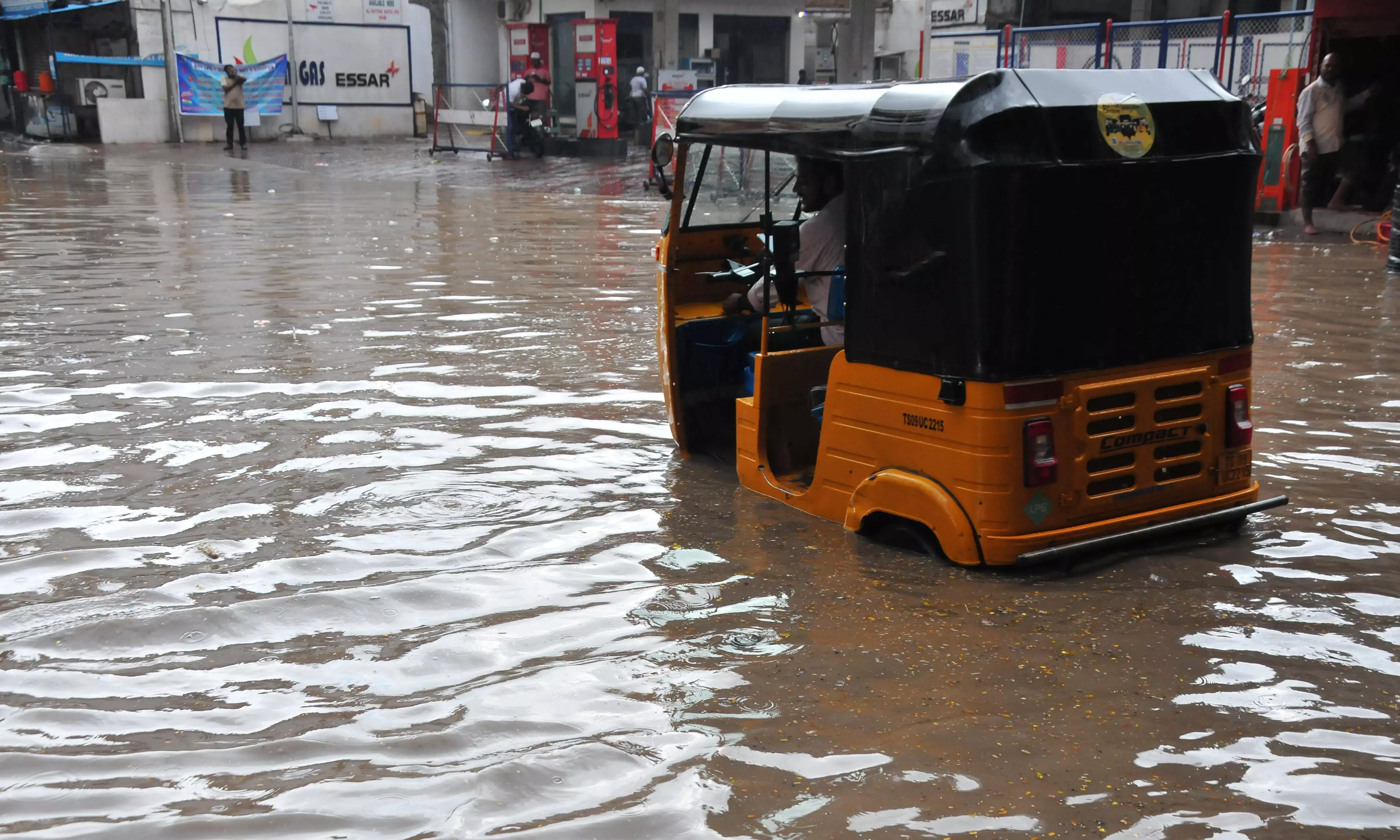Telangana: Extreme Weather Worsens Conditions for Workers

Hyderabad: Extreme weather conditions, be it rain or heat, are pushing autorickshaw drivers, and platform and gig workers into difficult conditions. There is no government relief policy for autorickshaw drivers whose vehicles get damaged due to excessive rain, while drivers and delivery persons, who are hired by private companies, are not entitled to any compensation for loss of life or for developing health complications.
“Once stuck in a flooded area, the autorickshaw may need a change of silencer, adapter or plug and that may cause damage of around Rs 3,000-Rs 4000,” said Mahesh, an autorickshaw driver in East Marredpally.
The damage may be caused by trees or when the vehicle crashes into heavy objects or railings that are unnoticeable during floods. Autorickshaw drivers do not get any insurance for damages caused to the glass screens or seat covers.
“Only 30 per cent of the damage is paid by insurance companies that collect around Rs 8,000 per year as premium. Vehicles are entitled to insurance only if the metal body is damaged. However, during rain, most of the damage is caused to the glass screen, seat covers, rubber, lights and engine,” said Mohammad Ali, a driver from Musheerabad.
While rains bring along financial burdens, heat waves cause harm to the driver’s body and mind.
As per a study conducted by HeatWatch and Telangana Platform and Gig Workers Union, around 49 per cent of bike riders, cab drivers and delivery boys reported lower productivity levels during heat waves. In a staggering revelation by the report, it has been found that heat waves caused 3,596 deaths in Telangana and Andhra Pradesh between 2012 and 2022.
The report also revealed that high temperatures, particularly in Hyderabad’s urban heat islands such as Patancheruvu, Bandlaguda, Gachibowli, Mailardevpally, BN Reddy Nagar, Hayatnagar and Mansoorabad, impacted gig and platform workers, who work long hours with low wages, no formal contracts and poor protection facilities. With limited access to water, shade or washrooms, they were at great risk of experiencing dehydration, heat exhaustion, kidney failure and even heat stroke.
Despite a high percentage of the workers (52 per cent facing heat exhaustion and 30 per cent heat stroke) experiencing illnesses, medical diagnosis was received by only 46 per cent of them. Among the 19 women workers who were surveyed, 13 reported that working in extreme heat resulted in menstrual cramps and related symptoms, while four women workers reported that they suffered urinary tract infections.

